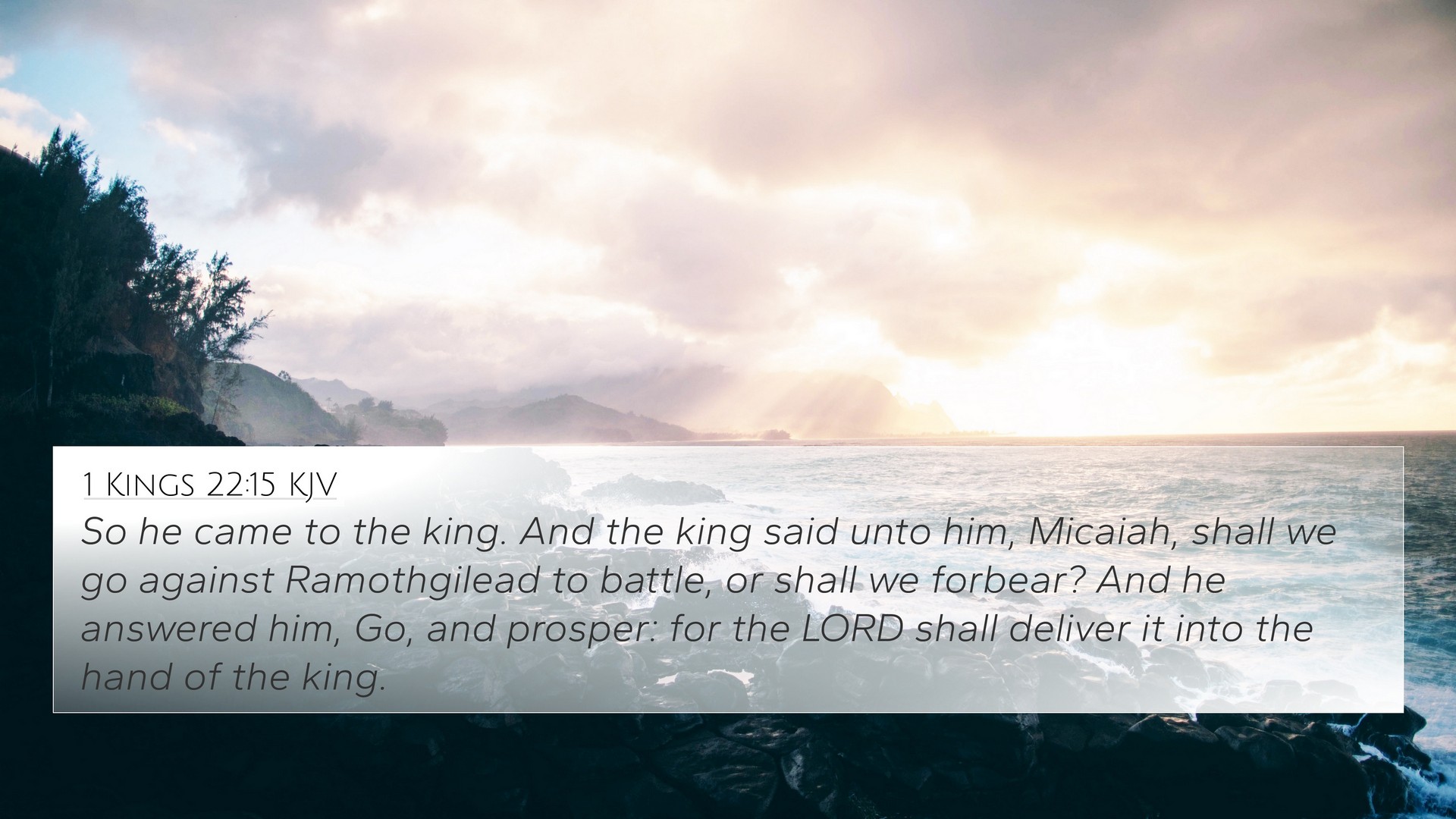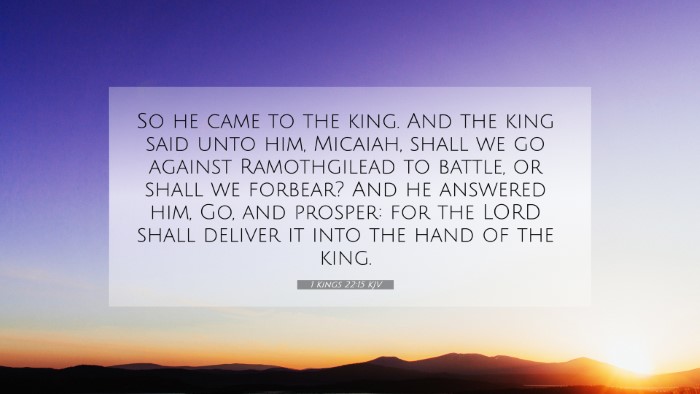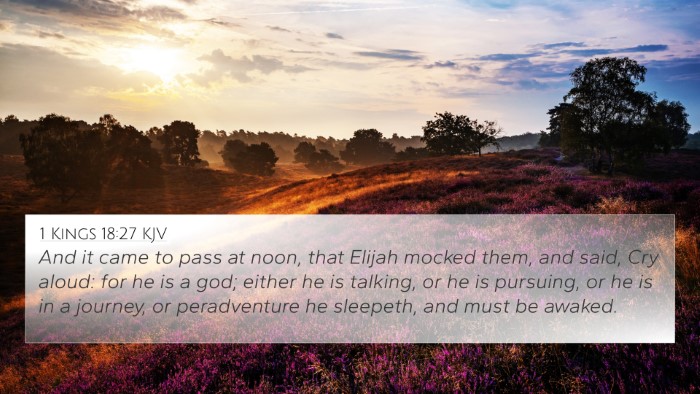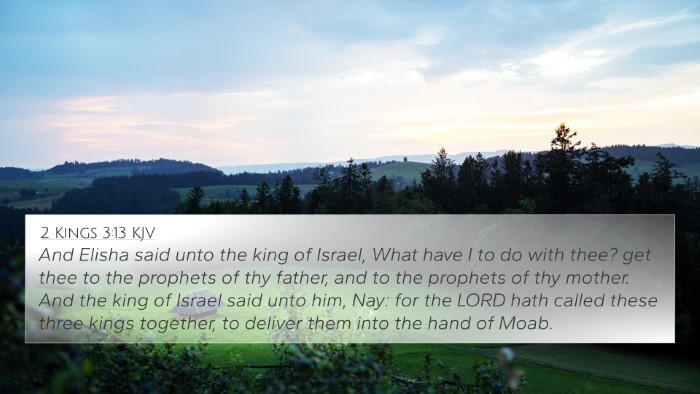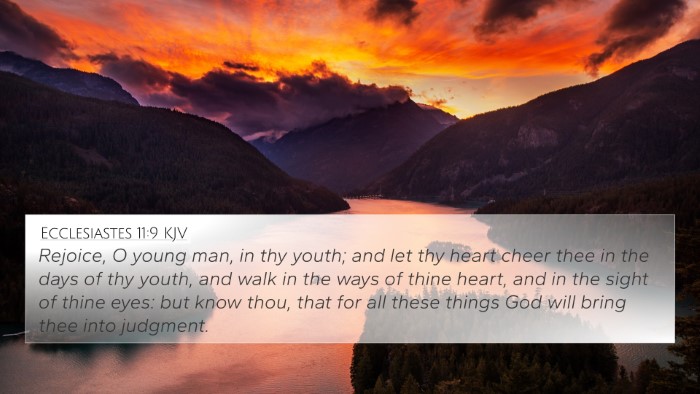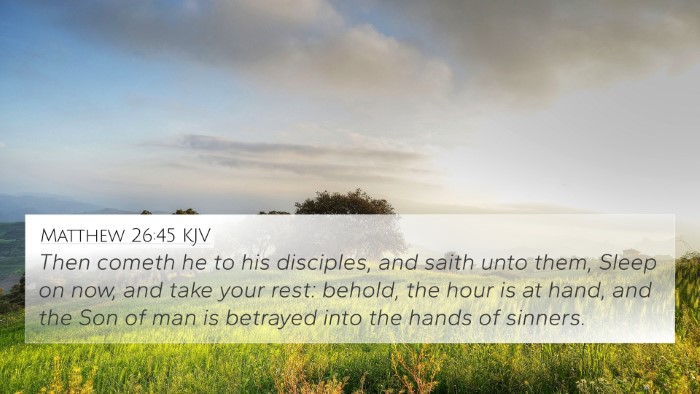Understanding 1 Kings 22:15
1 Kings 22:15 states, "So he came to the king. And the king said to him, 'Micaiah, shall we go to war against Ramoth Gilead, or shall we refrain?' And he answered him, 'Go and prosper, for the Lord will deliver it into the hand of the king.'" This verse opens a significant dialogue between King Ahab and the prophet Micaiah, representing the theme of true prophecy versus false assurances in the biblical narrative.
Context of 1 Kings 22
This chapter presents a critical moment in Israel's history where Ahab seeks counsel before going to battle. The narrative also includes other prophets who falsely assure Ahab of success, which sets the stage for a contrast between false prophecy and divine truth.
Commentary Insights
Combining insights from public domain commentaries, we draw the following interpretations:
-
Matthew Henry Commentary:
Henry emphasizes the danger of listening to flattering prophets. The encouragement Ahab receives is deceitful, masking the impending judgment of God against him.
-
Albert Barnes Notes:
Barnes highlights that Micaiah’s words, spoken ironically, reveal the expectation that Ahab would dismiss them. This reveals both Ahab’s character and the divine intention to expose him to judgment.
-
Adam Clarke's Commentary:
Clarke discusses the irony in Micaiah’s prophecy, suggesting that sometimes prophetic messages have layers of meaning, where the truth may initially appear as sarcasm or contradiction.
Key Themes and Interpretations
The verse encapsulates several theological themes:
- Divine Sovereignty: God’s control over the fate of nations is paramount, even using deceptive spirits to accomplish His will.
- Truth vs. Falsehood: The contrast is vividly seen between Micaiah’s authentic prophecy and the flattering messages that Ahab preferred.
- The Role of the Prophet: Micaiah’s role exemplifies the true responsibilities of a prophet — to speak God's truth regardless of personal or political consequence.
Cross-References Related to 1 Kings 22:15
This verse connects to several other biblical passages:
- 2 Chronicles 18:14-17: This parallel account highlights Micaiah's undeterred stance in the face of opposition.
- Jeremiah 14:14: Similar warnings against false prophets who speak from their own imaginations.
- 1 Kings 18:17-19: Elijah’s confrontation with Ahab illustrates the theme of serving the true God amidst false prophets.
- Deuteronomy 18:20: The consequences for false prophecy resonate throughout scripture.
- Isaiah 30:10: This passage reflects on people's desire to have smooth words, avoiding the harshness of truth.
- Ezekiel 13:3: Similar criticisms of false prophets who do not convey the Lord's messages accurately.
- Romans 16:18: Paul warns against those who deceive through smooth talk and flattery.
Practical Applications
From this verse and its surrounding context, believers can draw several lessons:
- Seek genuine counsel from those who are aligned with God’s truth, not merely those who offer comfort or affirmation.
- Recognize the importance of discerning truth in spiritual leadership.
- Understand that God sometimes allows deception in judgment, which can be a sobering reality in how we engage with prophetic words.
Conclusion
1 Kings 22:15 serves as a powerful reminder of the responsibility of both prophets and kings to seek and declare divine truth. By exploring cross-references and the broader narrative, one can gain deeper insight into the themes of obedience, deception, and divine sovereignty.
